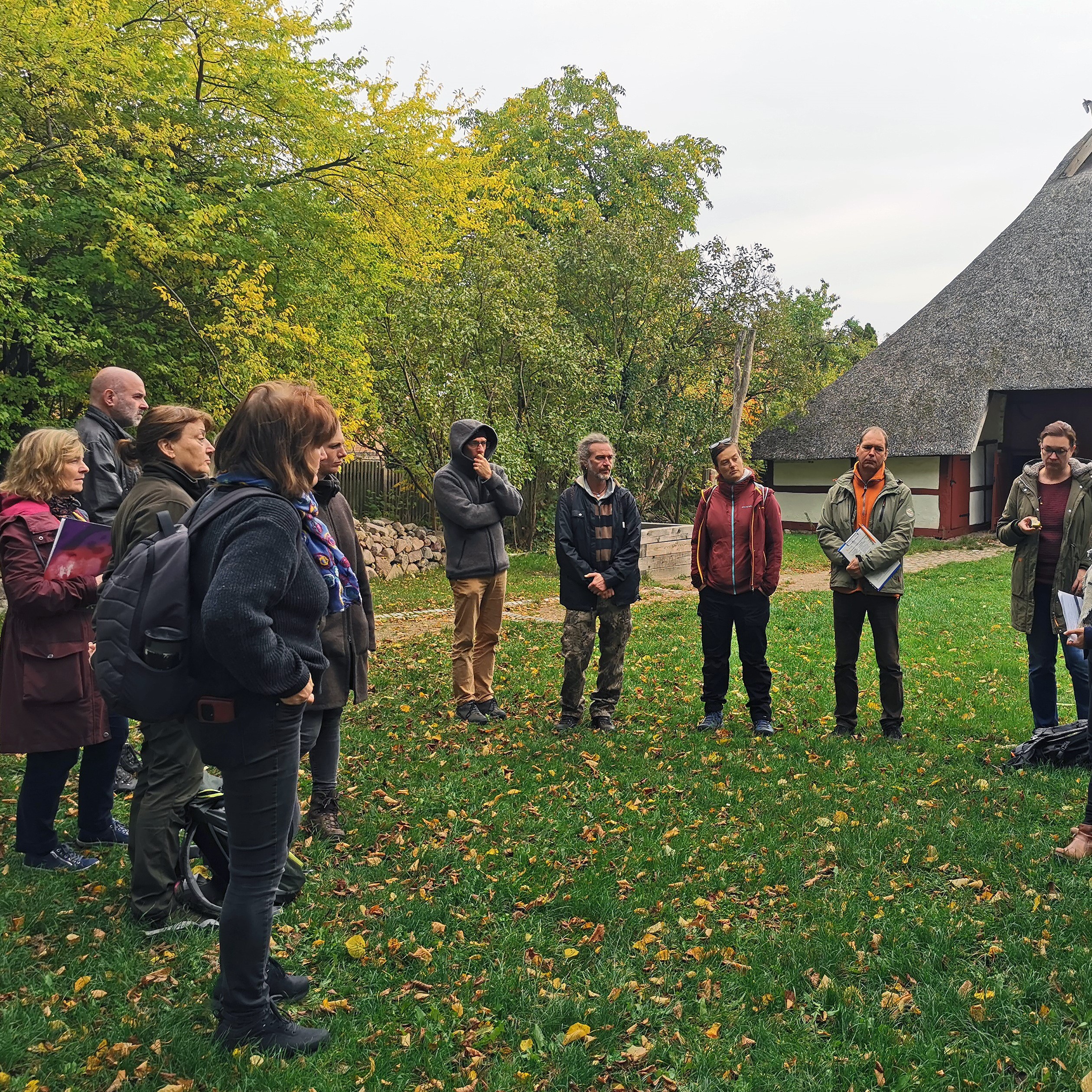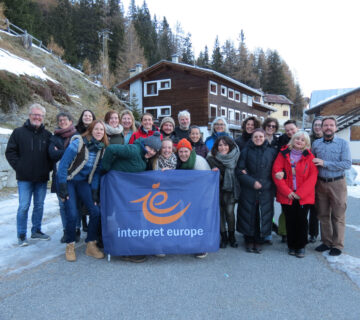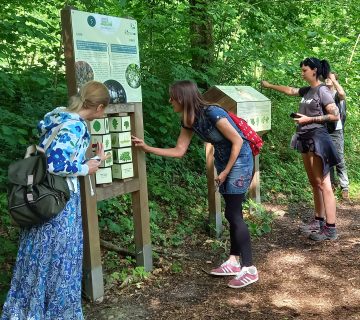A short journey through Mecklenburg-Vorpommern from factual knowledge to professional interpretation.
In October-November 2022, the LLS (Landeslehrstätte für Naturschutz und nachhaltige Entwicklung) in Mecklenburg-Vorpommern organised an IE Certified Interpretive Guide (CIG) course. The aim was to train more people who are already certified nature and landscape guides (ZNL) and other interested parties in that interpretive approach to guiding. In Mecklenburg-Vorpommern we already have about 400 certified nature and landscape guides working in the different National- and Nature Parks (ZNL). After a period of five years, every ZNL guide needs to do collegial consulting in order to get requalified. Therefore, colleagues qualified in didactics are much needed.
The course was split into two parts and took place in two very different locations. At the end of October we spent the first three days of our course in Mueß, an old fishing village now part of the town of Schwerin, and then the last two days of the course, now in November, were spent in Teterow, a small rural town set in the heart of Mecklenburg-Vorpommern. This way we had the chance to get to know two very different places. In Mueß we could take advantage of an open-air museum as a location to practice.
The museum, with its old traditional houses and objects, made it easy to find interesting phenomena to work with. In Teterow we found them in the nature reserve surrounding the youth hostel.
Our group of 15 was very diverse, from people who have been guides for 15 years to complete beginners just doing the ZNL course (including me). Getting to know the other participants and their very different backgrounds and sharing ideas and experiences was very inspiring.
At first, having done a lot of educational work in other fields, I was very skeptical of the method of interpretation as a part of leadership didactics. I have to admit it took me a while to understand its approach. Just preparing some facts following a central idea, posing open questions to connect with the audience? Really? Is that enough? Will people not be disappointed if I am not lecturing them about everything I know about the great plantain? But after a while, listening and experiencing some short interpretations from our trainer and my course mates, it grew on me. I began to understand the beauty of the concept. Interpretation is an important part of communication. By interpreting phenomena we invite people to make their own experiences with plants, places, and other phenomena and share their own thoughts and questions. people build connections and later on remember stories and details which goes far beyond just memorising some facts they have been told.
As a new ZNL guide and CIG this is what motivates me; to enable people to build meaningful connections with our natural and cultural heritage and by doing so raising awareness for our shared values. During our exams on the last day of the course it became obvious that I was not the only one who grew fond of the new technique. For some of us it was our first IE event but definitely not the last!
Josefine Schulz is a theologian working in human resources development and about to start working as a certified nature and landscape guide in Mecklenburg-Vorpommern, Germany. You can get in touch with her at: Josefine.Schulz@gmail.com.
To cite this article: Schulz, Josefine (2022) ‘Interpreting the great plantain’ in Interpret Europe Newsletter 4-2022, pg.9
Available online: https://interpret-europe.net/wp-content/uploads/2022/12/Newsletter-2022_4-winter.pdf



